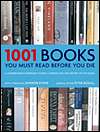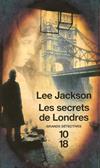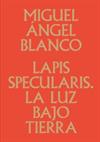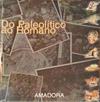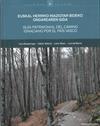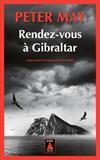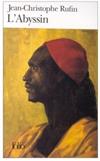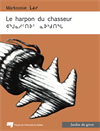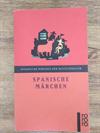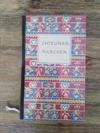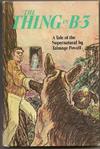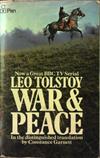
War And Peace
2 journalers for this copy...
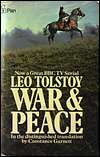 War and Peace is an epic novel by Leo Tolstoy, first published from 1865 to 1869, which tells the story of Russian society during the Napoleonic Era. It is usually described as one of Tolstoy's two major masterpieces (the other being Anna Karenina) as well as one of the world's greatest novels.
War and Peace is an epic novel by Leo Tolstoy, first published from 1865 to 1869, which tells the story of Russian society during the Napoleonic Era. It is usually described as one of Tolstoy's two major masterpieces (the other being Anna Karenina) as well as one of the world's greatest novels.War and Peace offered a new kind of fiction, with a great many characters caught up in a plot that covered nothing less than the grand subjects indicated by the title, combined with the equally large topics of youth, age and marriage. While today it is considered a novel, it broke so many novelistic conventions of its day that many critics of Tolstoy's time did not consider it as such. Tolstoy himself considered Anna Karenina (1878) to be his first attempt at a novel in the European sense.
The novel tells the story of over 70 aristocratic families (but concentrating on the Bezukhovs, the Bolkonskis, and the Rostovs) and the entanglements of their personal lives with the history of 1805–1813, specifically Napoleon's invasion of Russia. As events proceed, Tolstoy systematically denies his subjects any significant free choice: the onward roll of history determines happiness and tragedy alike.
The standard text is divided into four books (fifteen parts) and two epilogues. While roughly the first two-thirds of the novel concern themselves strictly with the fictional characters, the later parts of the novel, as well as one of the work's two epilogues, increasingly contain highly controversial, nonfictional essays about the nature of war, political power, history, and historiography. Tolstoy interspersed these essays into the story in a way which defies conventional fiction. Certain abridged versions removed these essays entirely, while others (published even during Tolstoy's life) simply moved these essays into an appendix.
War and Peace depicts a huge cast of characters, both historical and fictional, the majority of whom are introduced in the first book. At a soirée given by Anna Pavlovna Scherer in July 1805, the main players and families of the novel are made known. Pierre Bezukhov is the illegitimate son of a wealthy count who is dying of stroke, and becomes unexpectedly embroiled in a tussle for inheritance. Intelligent and ironic, Prince Andrei Bolkonsky, husband of a charming wife, finds little comfort in married life, instead choosing to be aide-de-camp of Kutuzov in their coming war against Napoleon. We learn too of the Moscow Rostov family, with four adolescent children, of which the vivacious younger daughter Natalya Rostova ("Natasha") and impetuous older Nikolai Rostov are the most memorable. At Bald Hills, Prince Andrei leaves his pregnant wife to his eccentric father and devout sister Maria Bolkonskaya and leaves for war.
If there is a central character to War and Peace it is Pierre Bezukhov, the illegitimate son of a wealthy count, who upon receiving an unexpected inheritance is suddenly burdened with the responsibilities and conflicts of a Russian nobleman. His former carefree behavior vanishes and he enters upon a philosophical quest particular to Tolstoy: how should one live a moral life in an imperfect world? He attempts to free his peasants and improve his estate, but ultimately achieves nothing. He enters into marriage with Prince Kuragin's beautiful and immoral daughter Elena, against his own better judgement.
Elena and her brother Anatoly then conspire together for Anatoly to seduce and dishonor the young and beautiful Natasha Rostova. Pierre rescues her, but recoils from his feeling of love for her. When Napoleon invades Russia, Pierre observes the Battle of Borodino up close by standing near a Russian artillery crew and he learns how bloody and horrific war really is. When Napoleon's Grand Army occupies an abandoned and burning Moscow, Pierre takes off on a quixotic mission to assassinate Napoleon and is captured as a prisoner of war. After witnessing French soldiers sacking Moscow and shooting Russian civilians, Pierre is forced to march with the Grand Army during its disastrous retreat from Moscow. He is later freed by a Russian raiding party. His wife Elena dies sometime during Napoleon's invasion and Pierre is reunited with Natasha while the victorious Russians rebuild Moscow. Pierre finds love at last and marries Natasha, while Nikolai marries Maria Bolkonskaya. Andrey, who was also in love with Natasha, is wounded during Napoleon's invasion and eventually dies after being reunited with Natasha before the end of the war.
Tolstoy vividly depicts the contrast between Napoleon and the Russian general Kutuzov, both in terms of personality and in the clash of armies. Napoleon chose wrongly, opting to march on to Moscow and occupy it for five fatal weeks, when he would have been better off destroying the Russian army in a decisive battle. General Kutuzov believes time to be his best ally, and refrains from engaging the French, who ultimately destroy themselves as they limp back toward the French border. They are all but destroyed by a final Cossack attack as they straggle back toward Paris.
Journal Entry 2 by  Davros-10
Davros-10 at Controlled Release in Lutwyche, Queensland Australia on Wednesday, March 26, 2008
at Controlled Release in Lutwyche, Queensland Australia on Wednesday, March 26, 2008
 Davros-10
Davros-10 at Controlled Release in Lutwyche, Queensland Australia on Wednesday, March 26, 2008
at Controlled Release in Lutwyche, Queensland Australia on Wednesday, March 26, 2008
Journal Entry 3 by 1001-library from Helsinki, Uusimaa / Nyland Finland on Wednesday, March 26, 2008

Thanks so much for your donation Davros-10!
This book is now part of the 1001-library. If you want to take this book from the library but don't know how to proceed, please refer to the library bookshelf.
This is the third time I've tried to do a journal entry and each time it has failed to be recorded due to a run-time error. Consequently I don't feel like typing as much as I did on the previous occasions.
As this book was still sitting here I decided to re-read it starting in early October last year.
All I can say is that it is as great as I remember, and a must read.
You can probably skip the second Epilogue though as it is simply Tolsoy's philosophising on the nature of history and how it is recorded.
As this book was still sitting here I decided to re-read it starting in early October last year.
All I can say is that it is as great as I remember, and a must read.
You can probably skip the second Epilogue though as it is simply Tolsoy's philosophising on the nature of history and how it is recorded.
This book is now back on the 1001 library bookshelf and can be borrowed by PMing Davros-10:)
If you want to take this book from the library but don't know how to proceed, please refer to the library bookshelf.
If you want to take this book from the library but don't know how to proceed, please refer to the library bookshelf.
